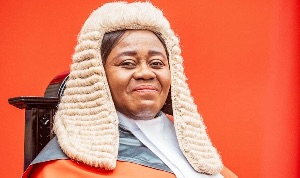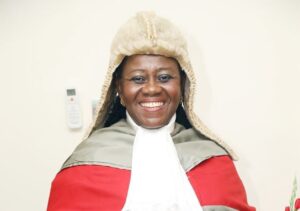Chief Justice Gertrude Araba Esaaba Sackey Torkornoo appears to be nearing the end of her tenure, as significant constitutional processes are underway that may lead to her suspension and eventual removal from office in the coming weeks.
Following a prima facie case established against her for alleged misconduct and abuse of power, a tribunal is expected to be set up to investigate the claims. This development marks a crucial moment in the evolution of Ghana’s Fourth Republic, especially in its approach to judicial accountability.
The petition prompting this investigation was reportedly submitted by the President, citing key concerns over the Chief Justice’s conduct during her time in office—particularly under the former administration of Nana Addo Dankwa Akufo-Addo.

Article 146 in Motion
Per Article 146(10)(a) of the 1992 Constitution of Ghana, the President, acting on the advice of the Council of State, is empowered to suspend the Chief Justice pending the outcome of the tribunal’s proceedings. Once such a tribunal is activated to probe a constitutional officeholder, the probability of removal is historically high.
Legal experts suggest that this provision ensures both due process and accountability at the highest level of the judiciary.

Public Sentiment and Political Implications
According to a recent poll conducted by Global Info Analytics, 70% of Ghanaians are in favor of Chief Justice Torkornoo’s removal. This reflects a growing desire among the public for transparency and ethical leadership within the judiciary.
If the Council of State gives its nod and the tribunal proceeds, Ghana may witness a rare and significant shake-up within its judicial leadership, reinforcing constitutional checks and balances.

